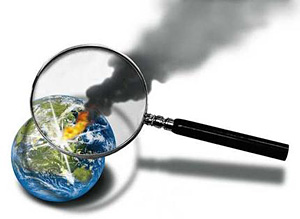While attending a meeting here recently, I referred to Mexico as a "major power." A government official said he was surprised. "We are a major power," he said, "but nobody knows that."
Mexico is the 11th largest nation in the world, with 114 million people. Its GDP of $1.6 trillion is 12th largest in the world. It has a labor force of 47 million. But it is still dismissed by many as an inconsequential player in world affairs.
A principal reason that few recognize Mexico's current and potential strengths is that the nation has done a poor job in defining itself through public diplomacy. Its outreach centers primarily on two topics: promoting tourism and defensively responding to the narco-wars that have killed tens of thousands of Mexicans. These two issues are important and linked.
Tourism is an essential part of Mexico's economic foundation and the drug wars deter visitors, investors, and others from wanting to have anything to do with Mexico. These matters must be dealt with forcefully, but not to the exclusion of other issues.
Mexico is one of the few large countries to have realistically addressed climate change, adopting an aggressive policy on reducing greenhouse effect gas emissions. As such, it has an enormous global constituency it can tap into should it decide to make advocacy on this issue a centerpiece of Mexican public diplomacy. If the government builds an identity along these lines, it may be able to reach a primary goal of public diplomacy: to win support of foreign peoples through attraction rather than coercion.
As Mexico's economy grows (its growth rate in 2010 was 5.5 percent), so too will its role in the world, and if it wants to be a leader in the global community it will need to assert itself on global issues such as climate change.
Mexican officials told me that they consider improving the country's public diplomacy to be a matter of national security. In the era of globalization, any country that withdraws into itself is certain to be left far behind. It will be economically anemic and, as such, vulnerable to domestic instability.
Mexico has excellent academic institutions, think tanks, and other organizations that could help the government craft an ambitious, comprehensive public diplomacy strategy. If this happens, Mexico's status as a major power is certain to be more widely recognized.
Philip Seib is professor of journalism and public diplomacy and professor of international relations at the University of Southern California. He is director of USCís Center on Public Diplomacy and is co-author of the forthcoming Global Terrorism and New Media, which will be published in 2010 by Routledge. Follow Philip Seib on Twitter.


